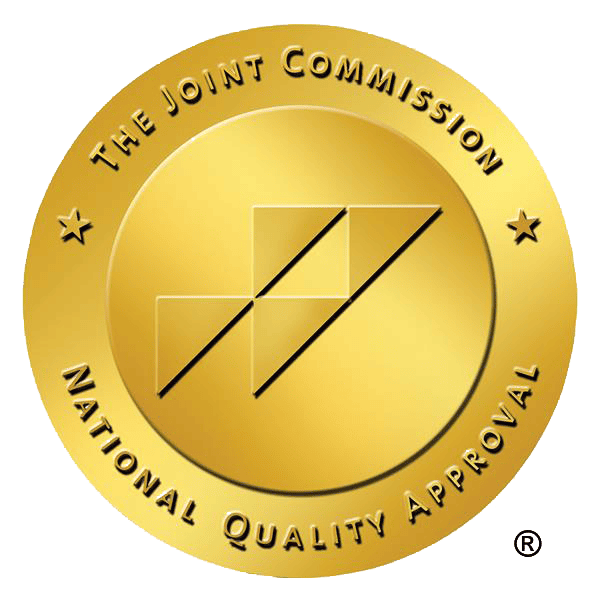Fentanyl addiction is a serious and growing concern across the world. For anyone worried about a loved one or even themselves, identifying the signs of fentanyl addiction early is critical to getting the right help. But noticing the signs is not always easy. Fentanyl is a potent synthetic opioid, and its effects on the body and mind can be more dangerous than other substances.
Understanding Fentanyl and Its Dangers
Fentanyl is often prescribed by doctors for severe pain management, especially in cancer patients or after major surgeries. However, because of its potency—up to 100 times stronger than morphine—it is also widely abused. Even small doses can be deadly, particularly when mixed with other drugs. Fentanyl is often added to street drugs, like heroin or cocaine, without the user even knowing, increasing the risks of overdose.
Recognizing the signs of fentanyl abuse is crucial for early intervention. Addiction can develop quickly, and without the right treatment, the consequences can be fatal. This guide will help you identify those signs and outline the withdrawal process to ensure you’re equipped with the knowledge to seek professional help.
According to CDC.gov, new data reveals that overdose deaths involving opioids rose from approximately 70,029 in 2020 to 80,816 in 2021. Overdose deaths related to synthetic opioids (mainly fentanyl), and psychostimulants like methamphetamine, and cocaine also saw a continued increase in 2021 compared to the previous year.
Common Signs of Fentanyl Addiction
Fentanyl addiction impacts both the mind and body, leading to noticeable changes in behavior, health, and daily habits. Some of the most common signs include:
Physical Dependence
Fentanyl creates a powerful physical dependency. Once the body becomes reliant on the drug, it requires regular use to function normally. Some signs of this dependency include:
- Increased tolerance: Needing higher or more frequent doses to feel the same effects.
- Withdrawal symptoms when not using fentanyl (such as nausea, sweating, shaking, and irritability).
- Constant cravings for the drug.
Behavioral Changes
Addiction often results in drastic changes in behavior. Those addicted to fentanyl may:
- Isolate themselves from family and friends.
- Prioritize getting and using fentanyl over all other responsibilities.
- Engage in risky behaviors, like purchasing drugs from unsafe sources.
- Experience mood swings, irritability, or anxiety, especially when not using the drug.
Changes in Appearance and Health
Long-term fentanyl use can cause significant damage to physical health. You might notice:
- Unexplained weight loss or gain.
- Lack of personal hygiene.
- Extreme fatigue or drowsiness, even after resting.
- A decline in overall health, including frequent infections, coughing, or other signs of immune suppression.
These signs may overlap with the signs of fentanyl use, such as difficulty concentrating, constricted pupils, and slowed breathing.
Signs of Withdrawal and Its Timeline
Fentanyl withdrawal is a challenging experience that occurs when someone reduces or stops using the drug after developing a dependency. Symptoms can include:
- Nausea, vomiting, diarrhea, and stomach cramps
- Muscle aches, joint pain, yawning, and runny nose
- Anxiety, restlessness, sweating, chills, insomnia
- Increased heart rate, blood pressure, mood swings, and drug cravings
Withdrawal can be intense and uncomfortable, resembling flu-like symptoms, and may even be life-threatening due to respiratory issues. Medical supervision is strongly recommended.
Timeline of Withdrawal:
- Early (12–24 hours): Initial symptoms include muscle aches, restlessness, sweating, insomnia, and cravings.
- Peak (Days 2–4): The most severe symptoms—nausea, vomiting, diarrhea, muscle pain, and mood swings—typically occur.
- Long-Term (Days 5–14): Symptoms begin to fade but may persist, including insomnia, anxiety, and fatigue.
- PAWS (Post-Acute Withdrawal Syndrome): Extended symptoms such as sleep disturbances, anxiety, and cravings may last for months or even years.
How Fentanyl Addiction Impacts Mental Health
Fentanyl not only affects the body but can have devastating impacts on mental health as well. People struggling with addiction may experience:
- Depression and anxiety.
- Paranoia or hallucinations.
- Severe mood swings.
- Difficulty making decisions or concentrating.
Mental health challenges can make it even harder to stop using fentanyl. Dual-diagnosis treatment, which addresses both addiction and mental health disorders, is often essential for long-term recovery.
Long-Term Consequences of Fentanyl Use
The long-term consequences of fentanyl addiction are severe and often irreversible. Regular use of fentanyl can lead to:
- Respiratory issues, including chronic shortness of breath.
- Increased risk of heart attack or stroke.
- Organ damage, particularly to the liver and kidneys.
- Weakened immune system, making the body more vulnerable to infections.
Additionally, fentanyl’s potency makes it more likely for users to accidentally overdose. Even those with a tolerance to other opioids can miscalculate a dose and face fatal consequences. Overdose risks make understanding the signs of fentanyl use and addiction incredibly important.
Getting Help: Treatment for Fentanyl Addiction
If you or someone you love is showing signs of fentanyl addiction, the most important step is to seek professional help. The recovery process from fentanyl addiction often involves several stages:
Detoxification
Detox is the first and often the hardest step in recovery. Due to the intense withdrawal symptoms, detox should always be done under medical supervision. Medical detox programs provide a controlled environment where doctors can monitor the patient and administer medications to help reduce withdrawal symptoms.
Inpatient Rehabilitation
Inpatient or residential rehab programs provide structured environments where patients can focus entirely on their recovery. These programs typically last 30-90 days, offering therapies like cognitive-behavioral therapy (CBT), group counseling, and one-on-one therapy sessions to help individuals address the root causes of their addiction.
Outpatient Rehabilitation
For those unable to commit to an inpatient program, outpatient treatment offers flexibility while still providing support. Patients attend regular therapy sessions, support groups, and counseling while living at home and maintaining their daily responsibilities.
Long-Term Support and Aftercare
Recovery from fentanyl addiction doesn’t stop after treatment. Ongoing therapy, support groups, and aftercare programs are crucial for maintaining sobriety and preventing relapse. This might include attending Narcotics Anonymous (NA) meetings, continuing counseling, or living in a sober community.
Why Early Intervention is Key
Fentanyl addiction can quickly spiral out of control. It’s critical to recognize the signs of fentanyl abuse early so that help can be sought before the addiction causes irreversible harm or even death. The sooner someone gets into a treatment program, the better their chances of recovery.
If you are worried about a loved one showing the signs, it’s important to have an open and supportive conversation. Express your concern, offer resources, and encourage them to seek professional help. Recovery is a challenging but achievable journey, especially when the right support system is in place.
Recognize the Signs of Fentanyl Addiction – Get Help Today
Fentanyl addiction is a life-threatening condition that can have a devastating impact on individuals and their families. Recognizing the signs of fentanyl addiction and seeking help early is the first step toward recovery. With professional treatment and long-term support, it is possible to overcome addiction and regain control of your life.
If you or someone you know is struggling with fentanyl addiction, reach out for help today—you don’t have to face this alone.









